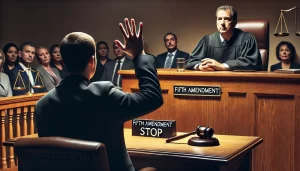 In In re Peters, the Texas Supreme Court addressed an assertion of the Fifth Amendment privilege against self-incrimination in the context of civil discovery—an uncommon but critically important Constitutional limit on discovery. The case arose from a tort lawsuit against a defendant who was allegedly driving while intoxicated. Among other holdings, the Court said:
In In re Peters, the Texas Supreme Court addressed an assertion of the Fifth Amendment privilege against self-incrimination in the context of civil discovery—an uncommon but critically important Constitutional limit on discovery. The case arose from a tort lawsuit against a defendant who was allegedly driving while intoxicated. Among other holdings, the Court said:
- Ongoing Criminal Proceedings: Active criminal proceedings are not required to claim the privilege. Here, the State was prosecuting Peters on the same facts underlying the civil case, which justified his assertion of the privilege.
- Waiver of Privilege: For a waiver to be valid, it must be “made voluntarily, knowingly and intelligently.” The court found that Peters’ statements to a police officer at the time of the accident did not meet this high standard for waiver, given his confused and disoriented state at the time.
- Potential for Further Incrimination: The court concluded that compelling Peters to disclose the names of the bars he visited could further incriminate him by leading to evidence that he drank more than he claimed. The court emphasized that the amount of evidence already collected against Peters is irrelevant; the witness need only show that an answer to the specific question at hand is likely to be hazardous to him.
No. 23-0611 (Tex. Oct. 4, 2024).



